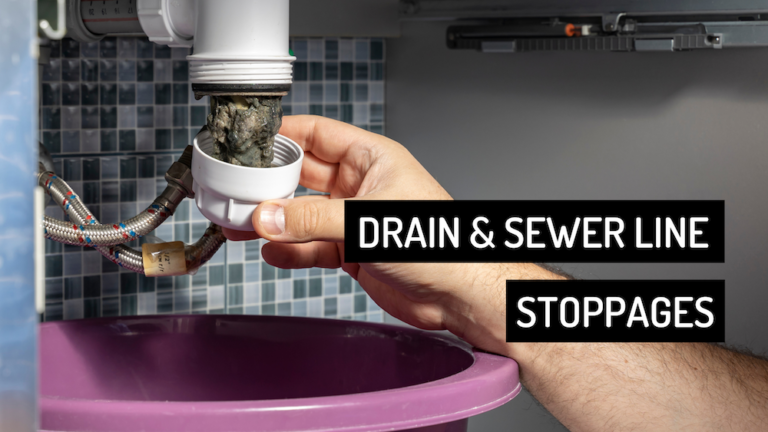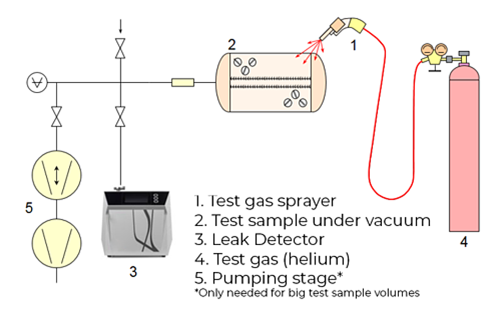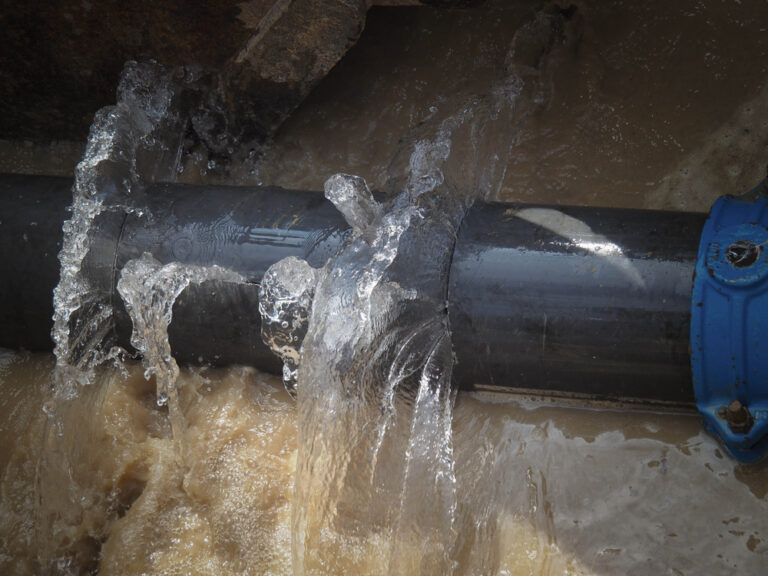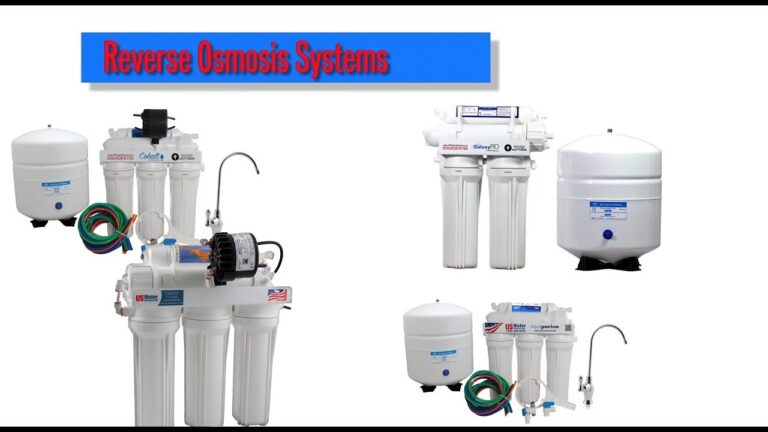What Causes Plumbing To Back Up?
A backed up plumbing system can be caused by a variety of factors. These include clogged drains, blocked pipes, damaged sewer lines, and tree roots. Clogged drains are usually caused by the buildup of hair, grease, soap, and food particles that can accumulate in the pipes over time. Blocked pipes can occur when foreign objects, such as toys, get stuck in the system. Damaged sewer lines can be caused by roots from trees and other plants that have grown into the line. All of these issues can lead to a backed up plumbing system, which can cause a number of problems, including water damage and the spread of bacteria.
Types of Plumbing Backups
When it comes to plumbing, backups can be a major issue. A backup can occur when something is blocking the normal flow of water, or when there is a clog in the system. It can also happen due to a malfunctioning appliance or a broken pipe. So, what causes plumbing to back up?
The most common type of plumbing backup is due to a clog in the pipes. This can be caused by a variety of things, such as tree roots, grease, dirt, and other debris. Clogs can also form when too much toilet paper or other materials are flushed down the pipes. If a clog is not removed, it can lead to a backup.
Another type of plumbing backup can be caused by an appliance malfunction. For example, if a dishwasher, washing machine, or other appliance is not functioning properly, it can cause a backup. Appliance malfunctions can also lead to a broken pipe or other damage.
Finally, plumbing backups can be caused by a broken pipe. If a pipe is damaged, it can lead to a blockage. This can be due to corrosion, freezing temperatures, or other causes. If the broken pipe is not repaired immediately, it can lead to a backup.
In conclusion, plumbing backups can be caused by a variety of things, such as clogs, appliance malfunctions, and broken pipes. It is important to identify the cause of the backup and repair it promptly to avoid further damage.
Common Causes of Clogged Drains
When it comes to plumbing, clogs are one of the most common problems homeowners face. Whether it’s a sink, tub, or toilet, clogs can cause a huge headache. A clog can not only be inconvenient and cause water to back up in your home, but it can also be damaging to your pipes. To help prevent plumbing backups, it’s important to understand the most common causes of plumbing blockages.
Tree roots are one of the most common causes of plumbing blockages. As trees grow, their roots can expand and penetrate pipes, causing them to break and block the flow of water. Grease, hair, and other debris can also get stuck in pipes and cause blockages. In some cases, old, corroded pipes can collapse, creating blockages.
To prevent plumbing backups, it’s important to be aware of what goes down your drains. Don’t pour grease, oil, or other liquids down your sink, and be sure to keep hair out of your tub and shower drains. It’s also important to regularly inspect your pipes for damage and replace any worn or corroded pipes. Additionally, if tree roots are an issue, you may want to consider having pipes rerouted or installing root barriers. By doing these simple steps, you can help prevent plumbing backups and keep your drains clear.
Prevention of Plumbing Backups
Plumbing backups can be a real pain, leading to costly repairs and inconvenient messes. Fortunately, there are steps you can take to prevent them. One of the most effective ways to prevent plumbing backups is to regularly inspect your pipes and check for any signs of clogging or blockages. If you identify any blockages, you should immediately take action to remove them. It is also important to regularly inspect drains, sinks, and toilets for any potential blockages. Additionally, you should avoid pouring grease, food scraps, and other debris down your drains, as these can cause blockages.
You should also consider installing a backflow prevention device, which can help prevent wastewater from flowing back into your pipes. These devices should be checked and serviced regularly. Finally, regular maintenance of your plumbing system, including repairs and replacements, can help ensure that your pipes are working properly and not prone to clogging. By taking these steps, you can help ensure that your plumbing system is running smoothly and that you can avoid the hassle and expense of plumbing backups.

Steps to Take When a Backup Occurs
When a plumbing backup occurs, it can be a hassle to figure out the cause and find a solution. Plumbing backups can be caused by a variety of different factors, including clogged drains, broken sewer lines, tree root infiltration, and more. It’s important to take the right steps when a backup occurs to ensure the problem is quickly and efficiently corrected.
The first step in addressing a backup is to identify the cause. If the backup is localized to one sink or toilet, it is likely a clog that can be cleared with a plunger or plumbing snake. If the problem is more widespread, it could be a bigger issue like a broken sewer line or tree root infiltration. If the cause isn’t immediately clear, a professional plumber can be called to inspect the plumbing system and diagnose the issue.
Once the cause is identified, it must be addressed. Clogs can often be cleared with a plunger and/or a plumbing snake. If the cause is more serious, such as a broken sewer line, a professional plumber may need to be called to repair or replace the line. If tree roots are blocking the line, the roots may need to be professionally removed.
Finally, it’s important to take preventative steps to avoid future backups. Homeowners should regularly inspect their plumbing systems for signs of clogs, wear, and corrosion, and they should also ensure that their home is equipped with the right drain strainers and filters. Additionally, homeowners should avoid flushing items down the drain that can cause clogs, such as paper towels, feminine hygiene products, and food scraps. Taking these proactive measures can help keep plumbing systems running smoothly and ensure that backups are quickly identified and addressed.
Professional Plumbing Services
Have you ever experienced a plumbing issue that caused your pipes to backup? While the problem could be minor, it can still be a headache and cost you time and money. Professional plumbing services can provide you with the solutions you need to resolve your issue and prevent it from happening again in the future.
Understandably, many homeowners are unsure of the root cause of plumbing backups. There are a few common culprits that can cause plumbing systems to malfunction, including clogged toilets, tree roots infiltrating sewer lines, and old or broken pipes and fixtures. With the right professional plumbing services, you can identify the issue quickly and have it resolved quickly and without major disruption.
Professional plumbers have the expertise, experience, and necessary tools to diagnose and repair your plumbing issue. They can safely remove any blockages, repair any broken pipes, and replace fixtures as needed. Professional plumbers can also provide guidance on maintenance and preventive steps to ensure your plumbing system continues to work properly and efficiently.
Don’t wait until you experience a plumbing issue to call a professional. Regular inspections and maintenance can help you identify potential problems before they become major issues. Professional plumbing services can offer peace of mind that your plumbing system is running efficiently and safely.
DIY Plumbing Repairs and Maintenance
Plumbing back-ups can be caused by a number of things, including tree roots, clogs, and even corrosion. DIY plumbing repairs and maintenance can help to minimize the chances of a plumbing backup. When it comes to DIY plumbing repairs and maintenance, there are a few key things to keep in mind. First, it’s important to investigate the source of the problem before attempting any repairs. Additionally, it’s important to check the fittings and connections to ensure they are in good condition. If repairs are necessary, it’s important to have the right tools for the job, and to follow the manufacturer’s instructions. Additionally, it’s important to use the correct materials, and to ensure that the area is kept clean and tidy. DIY plumbing repairs and maintenance can help to prevent plumbing backups, and can help to minimize the chances of a more serious problem developing.
FAQs About the What Causes Plumbing To Back Up?
1. What are the most common causes of plumbing back-up?
The most common causes of plumbing back-up are grease buildup, tree root infiltration, and broken pipes.
2. How can I prevent plumbing back-up?
You can prevent plumbing back-up by regularly cleaning your pipes, inspecting your pipes for any potential damage, and properly disposing of any grease and other debris that can build-up in your pipes.
3. What should I do if my plumbing backs-up?
If your plumbing backs-up, you should immediately turn off your main water supply and contact a professional plumber to assess and repair the problem.
Conclusion
In conclusion, there are many possible causes of plumbing backups, such as clogged drains, tree root infiltration, broken pipes, blocked sewer lines, and incorrect plumbing installation. It is important to identify the root cause of your plumbing backup to determine the best course of action. Professional plumbers can help to diagnose and fix the issue, ensuring that your plumbing system is functioning properly and safely.







